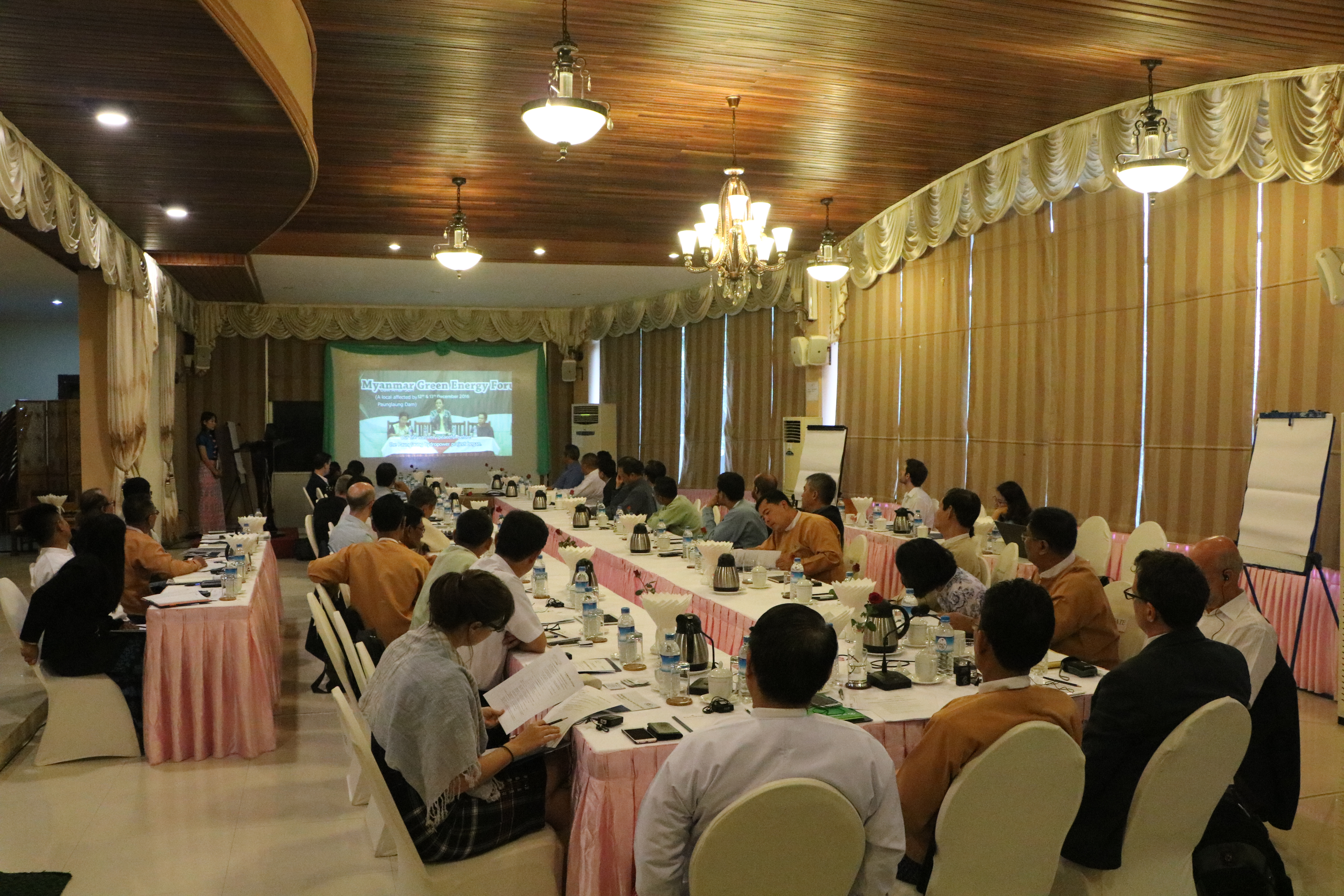Renewable energy solutions for Myanmar are not only feasible, but long overdue
Location: Yangon, Myanmar

(Myanmar language PDF attached below)
Myanmar is missing a major opportunity to develop its renewable energy potential, instead focusing mostly on coal and large hydropower. Coal-fired power plants and mega dams are “dinosaur” technologies that have severe negative impacts on climate change, public health, biodiversity and local livelihoods, civil society groups said today.
A high-level roundtable held in Naypyitaw on Wednesday demonstrated the urgent need for Myanmar to explore green options, including solar and wind power, and to debunk persistent myths around renewable energy. Participants included civil society groups, the private sector, international lenders and government stakeholders, including the Ministry for Electricity and Energy.
“The National League for Democracy should act in accordance with its election manifesto and promote renewable energy as a matter of political and economic importance,” said U Aung Myint from the Renewable Energy Association Myanmar. “If the government hopes to be ‘together with the people’ it needs to show that it is willing to listen to concerns about its energy development and grid extension plans before making decisions.”
Current energy plans, which only aim for a meager 10-percent renewable energy output by 2030, are leading the country towards climate disaster, social conflict and environmental damage. This stands in stark contrast to the ASEAN goal of using at least 20 percent renewable energy by 2025. Industrialized countries such as Germany show that a share of 35 percent or more is both technically and economically feasible.
“Germany’s energy transition shows that it is possible to integrate fluctuating renewables and simultaneously strengthen grid stability,” said Hans Josef-Fell, a German renewables expert from Energy Watch and former Green Party MP in Germany’s Parliament. “The only thing that is needed is political will and support.”
Public participation is necessary to ensure that electrification strategies reflect social needs. For all energy projects, there must be properly implemented environmental impact assessments and public participation processes. If Myanmar skips these steps, the country’s people and environment will end up paying the cost of damaging and short-sighted fossil fuel-driven energy plans, and the Myanmar government will lose some of the legitimacy and power attached to its current status as a net sink for carbon emissions.
Says Mirco Kreibich of Heinrich Böll Foundation, “Myanmar needs a frank and inclusive debate on its energy policy. All stakeholders should be included and the time for backroom deals or top-down decision-making should be over.”
Wednesday’s roundtable was a welcome step towards more open conversation on Myanmar’s energy options. It also highlighted how crucial it is for the Myanmar government to prioritize green energy and to promote regulatory reform that allows renewables to flourish.
“The reality is simply that Myanmar cannot afford to pursue fossil fuels and mega hydropower if it hopes to deliver sustainable energy access to its population while combating the effects of climate change,” said Hanna Hindstrom, Campaigns Coordinator at EarthRights International. “This week we heard a clear message that renewable energy solutions for Myanmar are not only feasible, but long overdue.”







